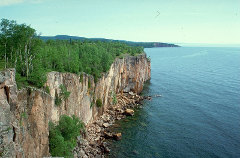Is It Selfish to Spend Money on Home Decor?
Body
“The first shared activity for the freed slaves was the construction of the tabernacle—a community art project!” - TGC
As iron sharpens iron,
one person sharpens another. (Proverbs 27:17)
“The first shared activity for the freed slaves was the construction of the tabernacle—a community art project!” - TGC
Bavinck insists, “To do full justice to religion, we must return to the central unity in man that is the basis for differentiating his faculties and which is in Holy Scripture designated the heart, from which proceed all expressions of life in mind, feeling, and will.” - TGC
“This perfume could have been sold at a high price and the money given to the poor.” Jesus answers them by saying, “Why are you bothering this woman? She has done a beautiful thing to me.” - Karen Swallow Prior
“…as we live with opened eyes, we will see that we are most truly never without beauty, if only we will accept its fleeting nature, if only we will cease lamenting the past and look to the present.” - Challies
“[T]oday a belief even in the possibility that there are things we can identify as good falls prey to cynicism. Culture reflects this. Across the dizzying variety of digital entertainment media, one constant holds: we live in the era of the ‘complex’ protagonist, characters whose stories lean toward a kind of benevolent moral ambiguity at best.
“I took with me the experience of having stood together with God, of having joined with him to admire the kind of beauty meant to delight the heart of a boy and to delight the heart of God himself.” - Challies
By Jeffrey D. Burr
This year marked the 10th anniversary of ArtPrize in Grand Rapids, Michigan. ArtPrize is an international art competition that takes place over 19 days every other fall. More than $500,000 in prizes are awarded. In 2018, over 1,260 works, created by artists from 41 states and 40 countries, were displayed in over 165 venues throughout the city. With over half a million visitors, it is the most attended public art event in the world.
“Deliberately pressing back against the circumstantial disruptors allows us to deliberately re-enter the story—with all of its beauty and wonder—that Jesus is writing within and around us.” - Cary Schmidt
“We’re finding infinitely complex, self-similar shapes all over creation. And we’re just getting started.”

Minnesotans joke about nature’s two seasons in these parts: winter and road construction. Fair enough; but head off road during repair season and you discover a state rich in natural treasures. Not the least of these is what we affectionately call the “North Shore” of Lake Superior. The beauty of this haunting, ever-changing body of water, with its rugged shoreline and untamed hinterland, is spellbinding.
A recent family trip located me on a secluded balcony high above the waves that lashed the rocky, Superior shoreline below. The evening air was warm and fresh—the kind of air so satisfying you seem to drink it as much as breathe it.
Looking out over the lake just after sunset, darkness shrouded the distinction between water and sky and between water and land. That period of gloom, just before the rising moon and starry hosts illumine the night, veiled the natural wonders before me like a curtain—a dramatic pause anticipating the show that was about to begin.
Discussion